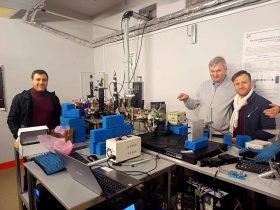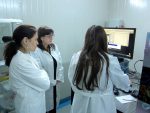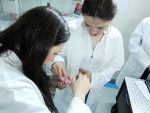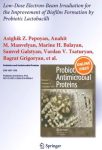September 13, 2019
Food irradiation is accepted by international food standards-setting organizations as an efficient method for the control of certain foodborne microorganisms in commercial food products. The benefits of food irradiation include efficient control of foodborne pathogens, delayed ripening of fruits and vegetables, elimination of insects in them, inhibition of sprouting and replacement of chemical disinfectants.
The international research team headed by Dr. Astghik Pepoyan (Armenian National Agrarian University) has studied the AREAL electron beam irradiation effects on cell surface hydrophobicity and biofilm-formation abilities of the commercial strain and the putative probiotic. The results have been published in the Springer Journal “Probiotics and Antimicrobial Proteins”, (A. Pepoyan, et al., “Low-Dose Electron-Beam Irradiation for the Improvement of Biofilm Formation by Probiotic Lactobacilli”, Probiotics and Antimicrobial Proteins, p. 1-5, Springer, DOI:10.1007/s12602-019-09566-1, 2019)
Probiotics are defined as live microorganisms which, when administered in adequate amounts, confer a health benefit on the host. They are used in the food industry, most often during the packaging and food production processes aimed at controlling foodborne pathogens. The combined use of low-dose eBeam technology and probiotic lactobacilli, which are resistant to eBeam and maintain their probiotic characteristics after treatment, might increase the efficiency of food sterilization and packaging processes. It is a relatively inexpensive and “clean” alternative to high doses of irradiation used for the control of microorganisms in the food environment.












